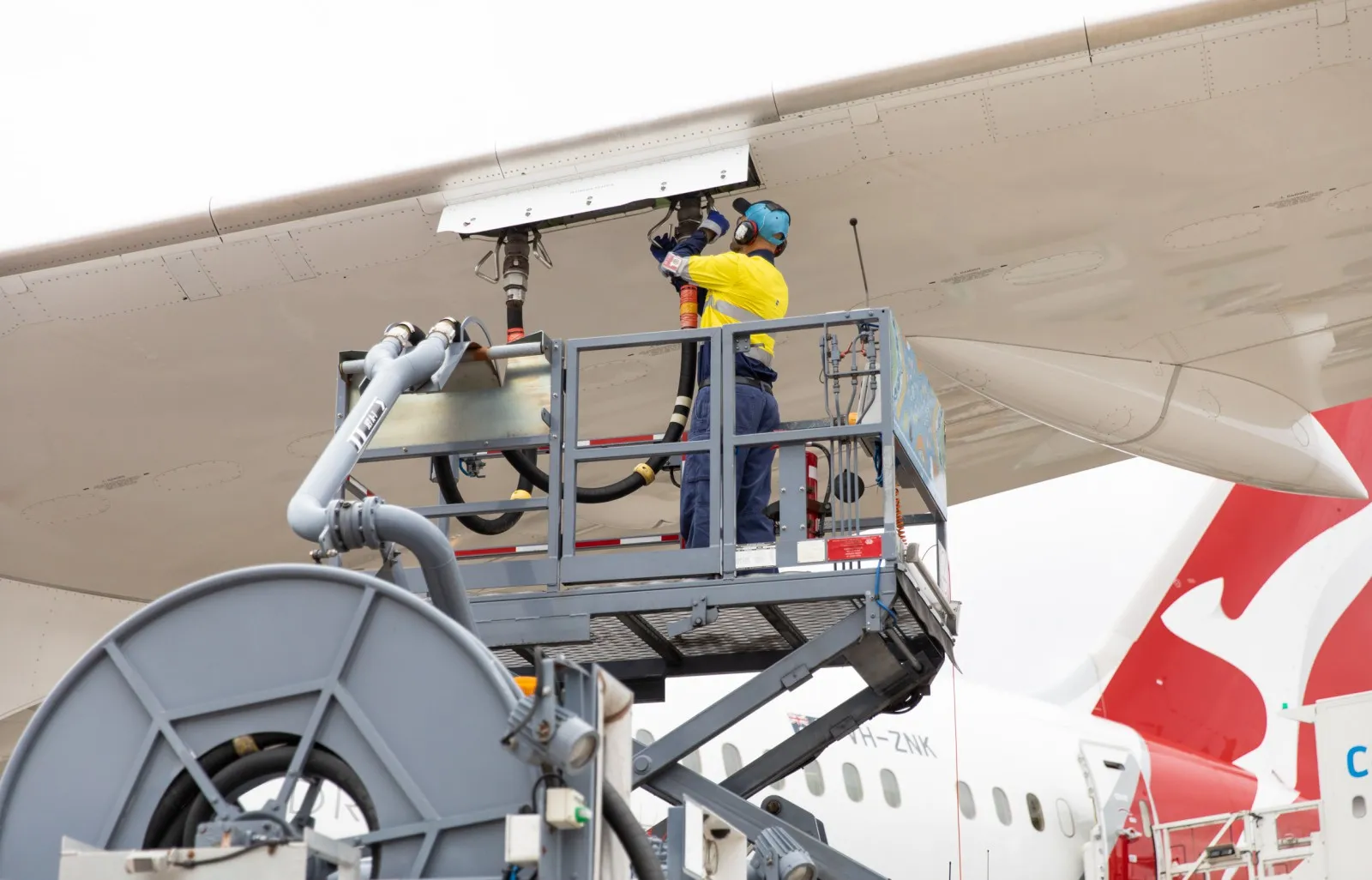
Qantas and Airbus to push eco fuel production downunder
Jun 19, 2022

Qantas and Airbus are collaborating to advance the production of sustainable aviation fuel (SAF) in Australia, aiming to significantly reduce carbon emissions in the aviation sector. This partnership focuses on harnessing local resources and technology to create eco-friendly fuel alternatives, promoting not only environmental sustainability but also economic growth within the region. By investing in SAF development, Qantas and Airbus are paving the way for a greener future in air travel, enhancing Australia’s role in the global push for cleaner aviation practices. This initiative reflects a commitment to innovation and environmental responsibility in aviation.
Qantas and Airbus have embarked on an ambitious initiative to enhance the production of eco-friendly fuel in Australia. This partnership aims to establish a robust supply chain for sustainable aviation fuel (SAF), which is pivotal for reducing the carbon footprint of air travel. With the aviation industry being a significant contributor to greenhouse gas emissions, the shift towards sustainable practices is crucial. Below, we delve into the details of this initiative, its implications for the aviation sector, and how it aligns with global sustainability goals.
What is Sustainable Aviation Fuel (SAF)?
Sustainable Aviation Fuel (SAF) is a renewable fuel designed to reduce greenhouse gas emissions associated with air travel. It can be produced from various feedstocks, including waste oils, agricultural residues, and even carbon capture technologies. Compared to traditional jet fuels, SAF can reduce emissions by up to 80% over its lifecycle. The push for SAF is essential in meeting international climate goals and ensuring the aviation industry's long-term sustainability.
The Qantas and Airbus Partnership
The collaboration between Qantas and Airbus marks a significant milestone in the Australian aviation sector. By focusing on eco fuel production, both companies aim to lead the charge in making aviation more sustainable. This partnership is not only about creating fuel but also about developing the infrastructure needed for large-scale production and distribution of SAF in Australia.
Key Objectives of the Initiative
The primary goals of the Qantas and Airbus partnership include:
- Establishing a local supply chain for sustainable aviation fuel.
- Reducing the carbon footprint of Qantas flights.
- Promoting research and development in eco-friendly fuel technologies.
- Engaging with local communities and stakeholders to ensure support for eco fuel initiatives.
Advantages of Eco Fuel Production in Australia
Establishing eco fuel production capabilities in Australia offers numerous benefits, including:
| Benefit | Description |
|---|---|
| Environmental Impact | Reduces greenhouse gas emissions and promotes cleaner air quality. |
| Economic Opportunities | Creates jobs in the renewable energy sector and boosts local economies. |
| Energy Security | Reduces reliance on imported fuels, ensuring energy independence. |
| Innovation | Encourages technological advancements in renewable fuel production. |
Global Context of Eco Fuel Production
The Qantas and Airbus partnership is part of a larger global movement towards sustainable aviation. Many countries are investing in research and infrastructure for SAF production. According to the International Air Transport Association (IATA), the aviation sector is aiming for net-zero emissions by 2050, with SAF playing a crucial role in achieving this target. The following chart illustrates the global growth of SAF production capacity:

Challenges Ahead
While the initiative is promising, several challenges must be addressed to realize the full potential of eco fuel production:
- High Production Costs: Currently, the production of SAF is more expensive than conventional jet fuel, necessitating financial support and incentives.
- Infrastructure Development: Building the necessary infrastructure for SAF production and distribution requires significant investment and planning.
- Feedstock Availability: Ensuring a sustainable and sufficient supply of feedstocks for SAF production is crucial for long-term viability.
Conclusion
The collaboration between Qantas and Airbus to advance eco fuel production in Australia represents a significant step towards a more sustainable future for aviation. By investing in sustainable aviation fuel, both companies are not only addressing the urgent need for carbon reduction but are also positioning themselves as leaders in the global effort to combat climate change. The initiative's success will depend on collaboration among various stakeholders, including government bodies, industry players, and communities, to overcome the challenges ahead. As the aviation industry moves towards a greener future, the role of sustainable aviation fuel will undoubtedly become increasingly critical.
Related Articles

Explore Thailand: The Best Islands to Visit for Paradise, Adventure, and Relaxation

The Ultimate Guide to the Best Islands in Thailand for Your Next Getaway

Do babies need passports? How to get a passport for a newborn

How to get a U.S. passport fast: here’s how to expedite the process

What is Mobile Passport Control: 5 reasons why you should use it

SENTRI vs. Global Entry: A detailed guide

Do you need a passport to go to the Bahamas? Let’s find out

Do you need a passport to go to Mexico? A detailed guide

Do you need a passport to go to Canada? We got the answer

Do You Need a Passport for a Cruise: An Essential Travel Guide

Booster Seat Requirements: All the Rules to Follow in Your Rental Car

What Are the World’s Most Powerful Passports, and How Does Yours Rank?

How to Take a Passport Photo at Home: A Helpful Guide

You've got to have heart! Southwest's new livery

Your opinion: Should water be free on low cost carriers?

Young women bolder than guys as solo travellers
